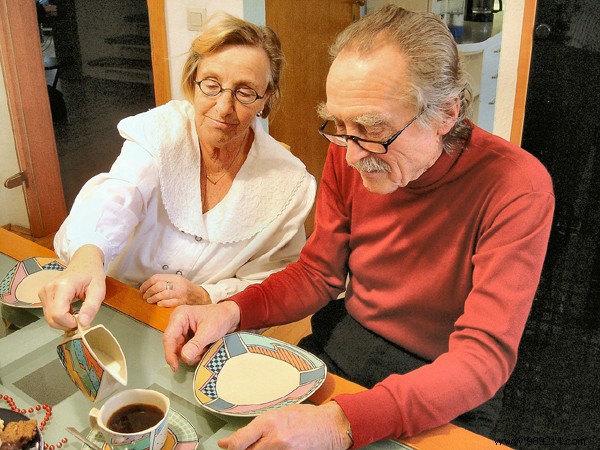
With parents aging and life expectancy increasing, more and more children have to take care of their elderly parents not necessarily being able to stay alone at home due to a loss of autonomy. However, nothing is simple for two different reasons:on the one hand, psychologically, it is sometimes difficult to accept the physical and mental degradation of one's ancestors which is combined with the feeling of guilt at "abandoning" them in reception structure, and on the other hand, from a practical and financial point of view, free places in specialized establishments are rare and expensive.
The vast majority of seniors want to stay in their home and grow old there surrounded by their belongings and their memories, even if a housekeeper or carer comes by regularly. Moreover, these jobs can be subsidized by the State via the APA (personalized autonomy assistance). This is obviously the ideal. However, all it takes is a small medical or domestic mishap to make this no longer playable. With aging, small memory losses can disrupt temporal and social markers:forgetting meal times, an appointment.
Gradually, the isolation of the elderly person can worsen, not to mention that malnutrition problems can also be observed by children (fridge almost empty or containing expired products). If the elderly person is alone, especially following the death of their spouse, this situation is amplified by the absence of any ripple effect that the spouse could cause.

So, it is advisable to choose a retirement home or Ehpad (accommodation establishment for dependent elderly people) for the elderly person. If the senior is valid, it is possible to opt for a Senior Services Residence or a hostel accommodation, or even intergenerational housing. It is not obvious that she accepts this move easily.
For this reason, it is important to anticipate when the person is still brave:he will have visited the place, will have been able to prepare himself psychologically... What should be noted today is that seniors who leave their homes are increasingly older and therefore increasingly dependent:the quest for a retirement home is quickly followed by that of a nursing home. The latter welcome elderly people who are very disparate in terms of their state of health:from disabled people to people with only the onset of Alzheimer's, the margin is wide...
From a purely practical point of view, the accommodation will gradually be adapted with, for example, the installation of grab bars in the toilets, the replacement of the bathtub by a shower, the choice of a telephone large buttons with memorization of useful numbers, the installation of high power sockets, the wearing of a device for detecting discomfort or emergency calls, etc. You should know that aid can be requested as part of the programs of the National Agency for the Improvement of Habitat (Anah) and that certain works also give the right to a tax credit.
And then, the government initiated the legislative process relating to the law on the adaptation of society to ageing, it is a first step even if it remains very very insufficient and that it does not include anything on the financing of accommodation in Ehpad.